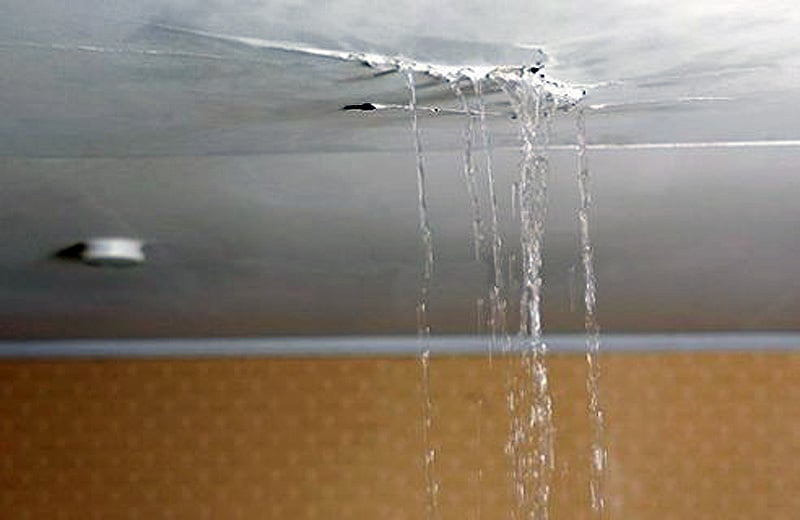Your House's Most Common Triggers of Leakage: In-Depth Analysis
Your House's Most Common Triggers of Leakage: In-Depth Analysis
Blog Article
We have noticed this article pertaining to Most Common Causes of Leaky Pipes below on the net and think it made perfect sense to talk about it with you on this site.

Leakages not just create waste of water but can also cause unnecessary damage to your house as well as advertise undesirable natural development. By looking and also recognizing for day-to-day scenarios that create leakages, you can shield your home from future leaks and unnecessary damage.
Elbowing in origins
A lot of water leaks start outside the house instead of inside it. If you see a sudden reduction in water pressure, claim in your tap, require time to go out and also analyze your yard. You might observe damp spots or sinkholes in your lawn, which could suggest that tree roots are getting into water lines triggering water to permeate out. You can have your plumber check for breach, specifically if you have trees or hedges near your property.
Corroded water systems
This could be the reason of staining or bending on your water pipelines. If our plumbing system is old, consider replacing the pipes given that they are at a higher risk of rust than the newer designs.
Faulty Pipeline Joints
Pipe joints can weaken over time, resulting in water leakages. If you have loud pipes that make ticking or banging noises, particularly when the hot water is transformed on, your pipeline joints are probably under a lot of stress.
Instantaneous temperature level changes.
Extreme temperature level modifications in our pipes can cause them to increase and get unexpectedly. This development and tightening might create cracks in the pipelines, especially if the temperature are below freezing. It would be best if you watched on just how your plumbing works. The visibility of the formerly stated scenarios frequently shows a high threat.
Poor Water Connectors
Sometimes, a leakage can be brought on by loose hose pipes and pipelines that supply your appliances. Typically, changing is what triggers the loose water Connections. You could locate when it comes to a washing equipment, a pipe may spring a leakage because of trembling during the spin cycle. In case of a water links leakage, you might discover water running directly from the supply line or pools around your devices.
Blocked Drains
Blocked drains pipes may be aggravating and also inconveniencing, yet they can sometimes end up triggering an overflow leading to burst pipes. Keep eliminating any kind of materials that may go down your drains that could clog them to avoid such hassles.
All the above are root causes of leaks however not all water leaks result from plumbing leaks; some leakages could originate from roof covering leakages. All leaks ought to be repaired immediately to stay clear of water damages.
Leaks not just trigger waste of water however can additionally cause unneeded damages to your residence and promote unwanted natural growth. By looking as well as understanding for day-to-day circumstances that create leaks, you can protect your house from future leaks as well as unneeded damage. Today, we will certainly look at six leak creates that may be triggering your pipelines to drip.
At times, a leak can be created by loose hose pipes and also pipelines that supply your home appliances. In instance of a water links leak, you may observe water running straight from the supply line or pools around your devices.
How To Check For Water Leak In Your Home
How To Check for Leaks
The average household's leaks can account for nearly 10,000 gallons of water wasted every year and ten percent of homes have leaks that waste 90 gallons or more per day. Common types of leaks found in the home are worn toilet flappers, dripping faucets, and other leaking valves. These types of leaks are often easy to fix, requiring only a few tools and hardware that can pay for themselves in water savings. Fixing easily corrected household water leaks can save homeowners about 10 percent on their water bills.
To check for leaks in your home, you first need to determine whether you're wasting water and then identify the source of the leak. Here are some tips for finding leaks:
Take a look at your water usage during a colder month, such as January or February. If a family of four exceeds 12,000 gallons per month, there are serious leaks.
Check your water meter before and after a two-hour period when no water is being used. If the meter changes at all, you probably have a leak.
Identify toilet leaks by placing a drop of food coloring in the toilet tank. If any color shows up in the bowl after 10 minutes, you have a leak. (Be sure to flush immediately after the experiment to avoid staining the tank.)
Examine faucet gaskets and pipe fittings for any water on the outside of the pipe to check for surface leaks.
Undetected water leaks can happen without the home or business owner even realizing. If you suspect a water leak, but not able to find the source. It is time to contact a professional water leak detection service, The Leak Doctor.
How To Find a Water Leak In Your Home
https://www.leakdoctor.com/blog/How-To-Check-For-Water-Leak-In-Your-Home_AE197.html

We had been guided to that article on How Fast Water Damage Can Ruin Your Home from someone on our other web blog. Sharing is caring. Helping others is fun. Bless you for your time. Don't hesitate to pay a visit to our website back soon.
Emergency? Depend on our professionals. Report this page